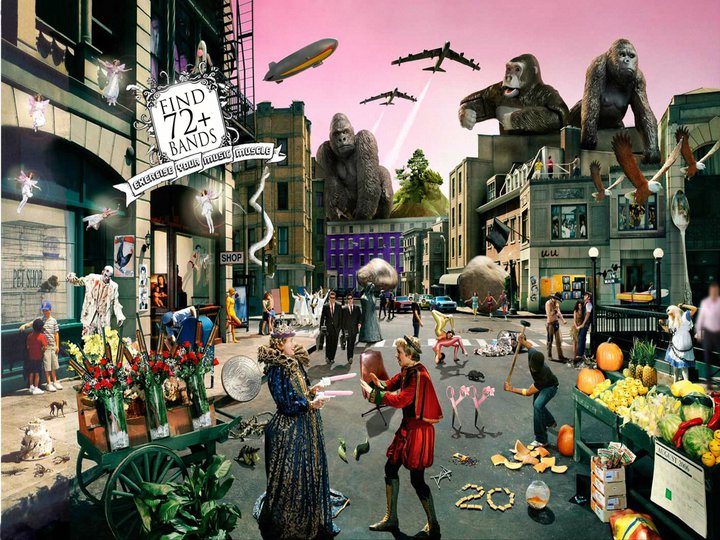
 Right now, American karaoke labels are struggling to compete with foreign competitors who wield huge advantages due to archaic American copyright laws and lax enforcement of overseas restrictions. The National Music Publishers’ Association (NMPA) was made very aware of these issues at the 2013 Karaoke Summit; all we ask is to be able to compete on a level field.
Right now, American karaoke labels are struggling to compete with foreign competitors who wield huge advantages due to archaic American copyright laws and lax enforcement of overseas restrictions. The National Music Publishers’ Association (NMPA) was made very aware of these issues at the 2013 Karaoke Summit; all we ask is to be able to compete on a level field.
When a foreign karaoke music company wants to release a new track, based on any popular song, they go to a rights organization, which administers karaoke rights in general, pay a nominal fee (usually 10% of retail), record and release the track.
In the United Kingdom, for instance, this is done with a simple KAR license from MCPS, through PRS For Music. PRS is the “rights organization”, doing the administrative work of collecting fees and distributing them to the appropriate song publishers.
In the US, the story is very different.
In the landmark ABKCO Music, Inc. v. Stellar Records, Inc. case in 1996, karaoke in America was defined by the courts as an “audiovisual work“, forcing domestic karaoke companies to secure a “video synchronization” license, a lyric reprint license, and mechanical recording license in order to release a karaoke song.
There is no rights organization for video sync.
Video sync licensing in the USA requires the explicit permission of the song publisher, meaning the American karaoke company has to hunt down each song writer or their agent individually, and secure a license under contract, a time-consuming and expensive undertaking. This is completely at odds with the transient nature of song popularity; by the time songwriters have been located, negotiated with and signed to a contract, the song in question has long disappeared from the charts and the window of opportunity closed.
In addition, there are thousands of popular songs that simply can’t be produced domestically at all, because the songwriters have decreed their songs will not be made into karaoke… in the USA.
But nothing prevents overseas companies from ignoring these edicts, securing a compulsory license from a rights organization, and releasing music from these songwriters and artists. And it appears that nothing is keeping them from selling those works in the United States, in spite of the fact that the licenses they’ve obtained explicitly don’t cover sales into the USA.
For example, the UK license noted above (PDF) from MCPS allows the company to sell anywhere in the world – except the USA and Canada. It would be a trivial matter for foreign companies to geo-block US IP-addresses and comply with their licenses, but the dirty truth is that the money is just too good. Red Karaoke, based in Spain, recently noted in an interview (here’s the Google translation) that about 50% of their revenue comes from the US. The company claims on their website that “we have licenses and agreements with the copyright entities and music publishers in the countries where we operate.”
However, a quick look at Red Karaoke’s catalog shows an enormous number of songwriters who are on the forbidden list in the USA, including Bruce Springsteen and Paul Simon, freely available to users from inside the United States. Additionally, the site uses the original album cover art and artist likenesses, rights that presumably would have to be negotiated with the original record labels and the artists themselves, respectively.
(Here’s the list of songwriters who forbid karaoke in the USA.)
At Digitrax, we’ve identified nearly thirty other entities operating outside the US and trafficking karaoke songs back into the USA that American companies are forbidden by law to sell. Unless the playing field can be leveled, we three surviving US karaoke labels are going to have a rough time.
Top image modified under Creative Commons 2.0 from Audio-TechnikaUK; second image licensed under Creative Commons 2.0 from Les Chatfield.


